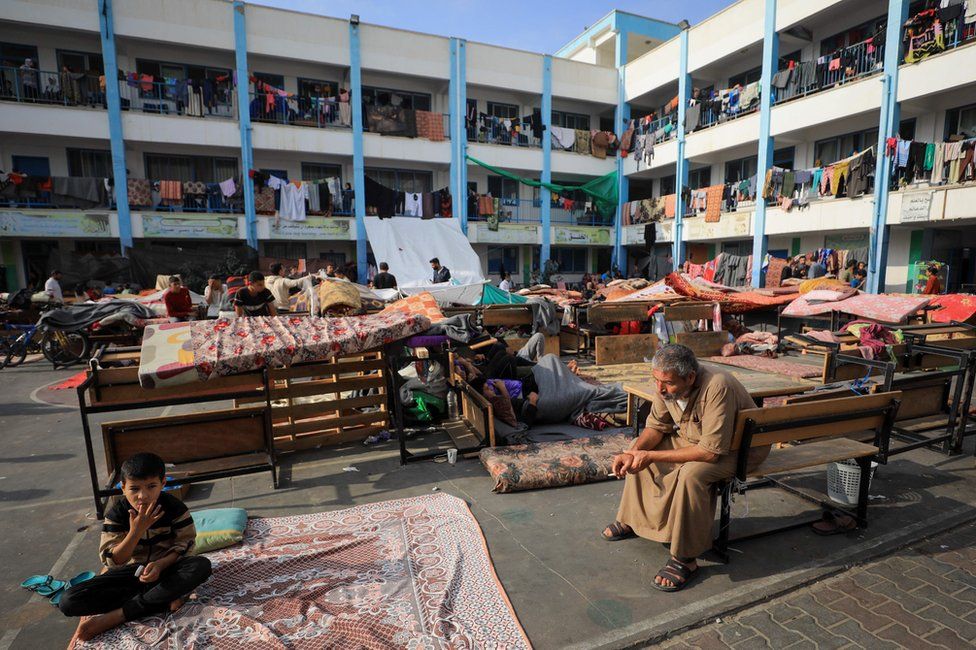-

-
-
Loading

Loading

In southern Gaza, hundreds of thousands of refugees are facing a worsening humanitarian crisis due to Israel's bombing campaign. These refugees are fleeing from Gaza's north and making their way down the Salah al-Din road to find safety. Many of them have very few possessions and are left with only their children and the clothes on their backs. Deir al-Balah, a central city in Gaza, has become a supposed safe zone, but the influx of refugees has plunged the city into crisis. The refugees are crammed into school buildings that have been turned into UN shelters, with up to 70 people in a single classroom. The conditions are dire, with limited space, lack of food, and broken sewage systems. Diseases like chickenpox, scabies, and lice are spreading rapidly. The UN's refugee agency, Unwra, was prepared to house 1,500 displaced people in each school, but now the average school-turned-shelter is housing 6,000 people. The overcrowding has overwhelmed the sanitation facilities, with an average of 125 people per toilet and 700 per shower unit. Some refugees are finding solace by spending their days at the beach, using the polluted seawater to wash themselves and their clothes. However, the situation remains dire, with limited access to clean water and food. Hospitals, like the Al-Aqsa hospital in Deir al-Balah, are struggling to cope with the influx of wounded people due to the Israeli bombing. The hospital is lacking necessary supplies and equipment and is unable to provide proper care. As the bombing intensifies, more people are seeking refuge in central and southern Gaza, but there is simply not enough room in the existing shelters. Refugees are resorting to building makeshift shelters against the sides of the buildings, leaving them exposed to the elements as the weather worsens. The situation is pushing the refugees to the brink, with limited access to food, potential malnutrition, and weakened immune systems. The refugees are left waiting for hours in long queues for bread, often returning empty-handed. The future looks bleak for these families who have already experienced so much suffering.